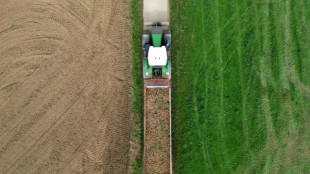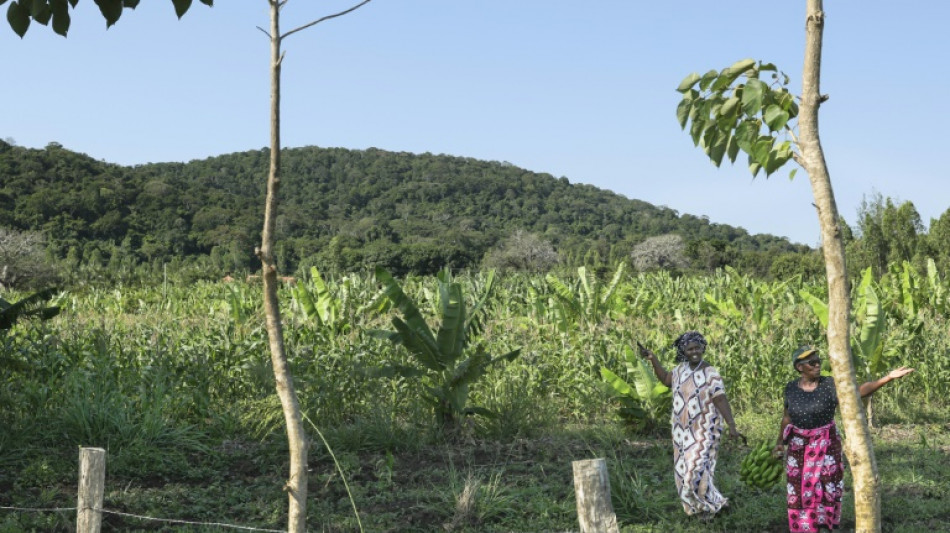
-
 UBS beats expectations as claws backs provisions
UBS beats expectations as claws backs provisions
-
German neo-Nazi rappers push hate speech, disinfo on TikTok

-
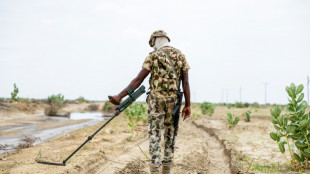 US aid flows to Nigeria anti-landmine efforts - for now
US aid flows to Nigeria anti-landmine efforts - for now
-
Low turnout as Tanzania votes without an opposition
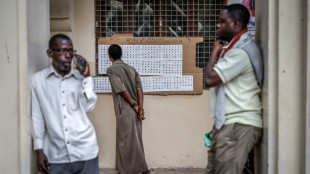
-
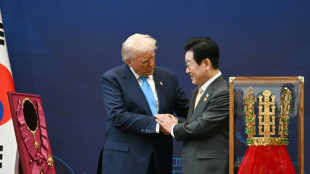 Monarch-loving Trump gifted golden crown once worn by South Korean kings
Monarch-loving Trump gifted golden crown once worn by South Korean kings
-
Dutch vote in test for Europe's far right

-
 Fugitive ex-PM says Bangladesh vote risks deepening divide
Fugitive ex-PM says Bangladesh vote risks deepening divide
-
On board the Cold War-style sealed train from Moscow to Kaliningrad

-
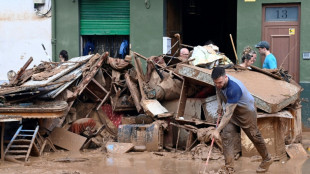 Spain to hold memorial on first anniversary of deadly floods
Spain to hold memorial on first anniversary of deadly floods
-
Gaza's civil defence says at least 50 killed in Israeli strikes
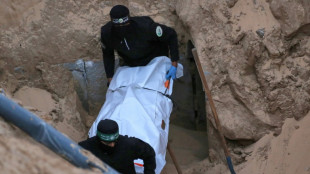
-
 Trump said 'not allowed' to run for third term, 'too bad'
Trump said 'not allowed' to run for third term, 'too bad'
-
Unruffled by Trump, Chinese parents chase 'American dream' for kids
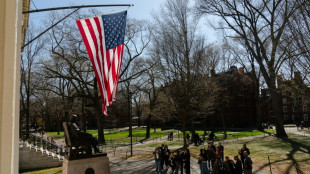
-
 Australian police design AI tool to decipher predators' Gen Z slang
Australian police design AI tool to decipher predators' Gen Z slang
-
Tanzania polls open with opposition excluded
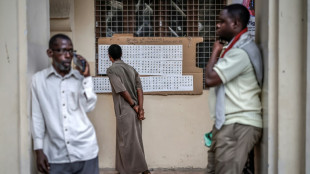
-
 Reckless England set New Zealand 176 to win second ODI
Reckless England set New Zealand 176 to win second ODI
-
Tanzania votes but with opposition excluded

-
 Coach defends handing Australia captaincy back to Sam Kerr
Coach defends handing Australia captaincy back to Sam Kerr
-
Thunder, 76ers remain unbeaten with NBA comeback wins

-
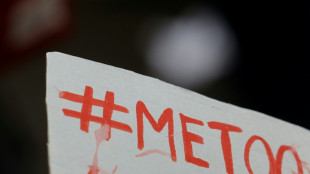 France expected to adopt consent-based rape law
France expected to adopt consent-based rape law
-
Blue Jays swat Dodgers 6-2, level World Series

-
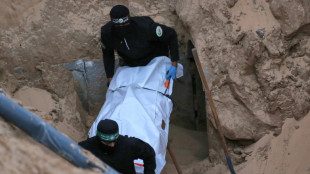 Trump says 'nothing' will jeopardise Gaza ceasefire after Israeli strikes
Trump says 'nothing' will jeopardise Gaza ceasefire after Israeli strikes
-
Australia's Cummins makes tentative bowling return

-
 Veni, vidi, whoopsie: Australian schools make Caesar exam blunder
Veni, vidi, whoopsie: Australian schools make Caesar exam blunder
-
With 100 days to go, Milan Winter Olympics chiefs 'can see finish line'

-
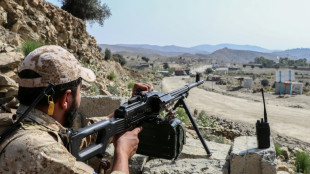 Pakistan says peace talks with Afghanistan 'failed'
Pakistan says peace talks with Afghanistan 'failed'
-
NZ raids shipping insurer over alleged sanctions busting

-
 Resilient young woman leads fight for euthanasia in Mexico
Resilient young woman leads fight for euthanasia in Mexico
-
'Dangerous Liaisons' gets MeToo twist in prequel 'The Seduction'

-
 As US blows up drug boats, Venezuelan oil sets sail
As US blows up drug boats, Venezuelan oil sets sail
-
US Fed on track to cut rates again in penultimate decision of 2025
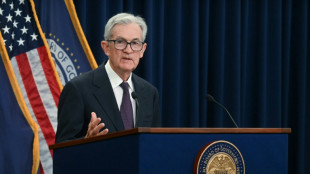
-
 North Korea announces missile test hours before Trump due in South
North Korea announces missile test hours before Trump due in South
-
'Arrested for singing': Russia's case against teen busker stirs anger

-
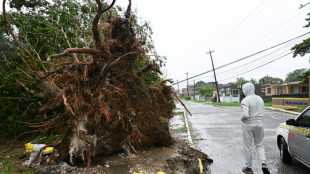 Hurricane Melissa takes aim at Cuba after roaring across Jamaica
Hurricane Melissa takes aim at Cuba after roaring across Jamaica
-
Ecological Threat Report 2025: Extreme Wet-Dry Seasons Emerge as Critical Conflict Catalyst

-
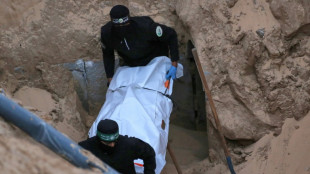 Israel launches air strikes on Gaza, says Hamas attacked troops
Israel launches air strikes on Gaza, says Hamas attacked troops
-
Injured Springer out of World Series game four

-
 'No-feeling' Alcaraz eliminated from Paris Masters
'No-feeling' Alcaraz eliminated from Paris Masters
-
Favorite Sovereignty could miss Breeders' Cup Classic after fever
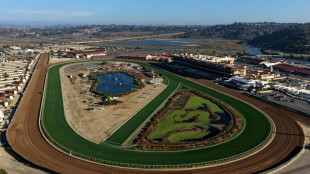
-
 Putellas-inspired Spain to defend Nations League title against Germany
Putellas-inspired Spain to defend Nations League title against Germany
-
Microsoft holds 27% of OpenAI in revamped partnership
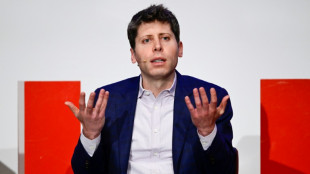
-
 Bronze nets birthday goal as England's women beat Australia
Bronze nets birthday goal as England's women beat Australia
-
'Catastrophic' hurricane slams Jamaica with fierce winds and rain
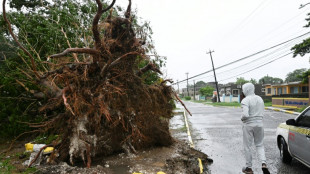
-
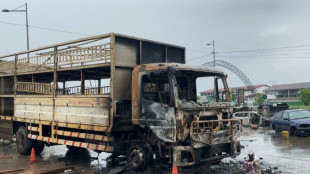 Cameroon blames post-vote deaths on opposition leader
Cameroon blames post-vote deaths on opposition leader
-
Cubans flee the coast as Hurricane Melissa looms
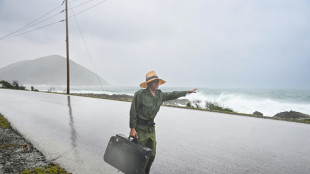
-
 Trump heads to South Korea with all eyes on Xi meeting
Trump heads to South Korea with all eyes on Xi meeting
-
At least 64 killed in war-like Rio drug raids

-
 Alcaraz stunned in Paris Masters opener by Britain's Norrie
Alcaraz stunned in Paris Masters opener by Britain's Norrie
-
Dortmund knock Frankfurt out of German Cup on penalties

-
 Napoli three points clear at Serie A summit after win at Lecce
Napoli three points clear at Serie A summit after win at Lecce
-
Putellas scores again to lead Spain into UEFA women's Nations League final


Global race for rare earths comes to Kenya's Mrima Hill
Division and suspicion have gripped five villages near Kenya's coast as global powers from the United States to China eye a forest that is rich in rare earths -- minerals vital to high-tech and low-carbon industries.
The US government under President Donald Trump has made securing critical minerals central to its diplomacy in Africa, including through a peace deal in the resource-rich Democratic Republic of Congo this year.
Mrima Hill -- a forest of around 390 acres near Kenya's Indian Ocean coastline -- could be another target.
It sits quietly on huge rare-earth deposits that Cortec Mining Kenya, a subsidiary of UK and Canada-based Pacific Wildcat Resources, estimated in 2013 were worth $62.4 billion, including large stores of niobium, used to strengthen steel.
US official Marc Dillard visited the hill in June when he was serving as the interim ambassador to Kenya.
Other foreigners also attempted to visit in recent months, including Chinese nationals who were turned away, according to Juma Koja, a guard for the Mrima Hill community.
An Australian consortium of mining firms RareX and Iluka Resources announced a bid this year to mine rare earths on the site, and locals say land speculators are flocking to the area.
- Buried riches -
The interest is worrying the community, mostly of the Digo ethnic group, who fear they will be evicted or denied a share in future mining windfalls.
The lush forest is home to their sacred shrines and has long supported farming and livelihoods, though today more than half the population lives in extreme poverty, according to government data.
AFP was initially barred access to the forest.
"People come here with big cars... but we turn them away," said Koja.
His stance stems from past encounters with prospective investors -- a process he says was not transparent.
"I do not want my people to be exploited," he said.
Kenya revoked a mining licence in 2013 that had been granted to Cortec Mining Kenya, citing environmental and licensing irregularities.
Cortec claimed in court that the licence was revoked after it refused to pay a bribe to then–mining minister Najib Balala, an allegation he denied. The company lost multiple legal efforts over the revocation.
In 2019, Kenya imposed a temporary ban on new mining licences over concerns about corruption and environmental degradation.
But it now sees a major opportunity, particularly as China -- the biggest source of rare earths -- increasingly limits its exports.
Kenya's mining ministry announced "bold reforms" this year, including tax breaks and improved licensing transparency, aimed at attracting investors and boosting the sector from 0.8 percent of GDP to 10 percent by 2030.
Daniel Weru Ichang'i, a retired economic geology professor at the University of Nairobi, said Kenya had a long way to go, especially in gathering reliable data on its resources.
"There's a romantic view that mining is an easy area, and one can get rich quickly... We need to sober up," he told AFP.
"Corruption makes this area, which is very high-risk, less attractive to invest in."
Competition between the West and China is driving up prices, but if the country wants to profit, it "must stick to the law, and individual interests must be subjugated to that of the nation," he said.
- 'Mrima is our life' -
On Mrima Hill, locals worry for their livelihoods, sacred shrines, medicinal plants, and the forest they have known all their lives.
"This Mrima is our life... Where will we be taken?" said Mohammed Riko, 64, vice chairman of the Mrima Hill Community Forest Association.
Koja is concerned about the loss of unique indigenous trees like the giant orchid, already a problem before mining has even started.
"In my heart I am crying. This Mrima has endangered species that we are losing," he said.
But others, like Domitilla Mueni, treasurer of the Mrima Hill association, see an opportunity.
She has been developing her land -- planting trees, farming -- in order to push up the value when mining companies come to buy.
"Why should we die poor while we have minerals?" she said.
T.Khatib--SF-PST

